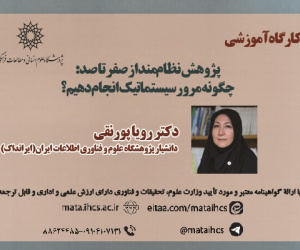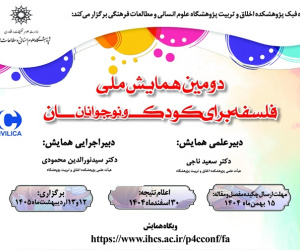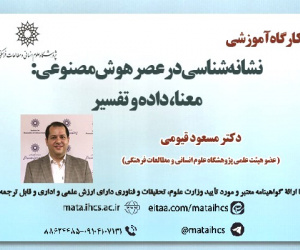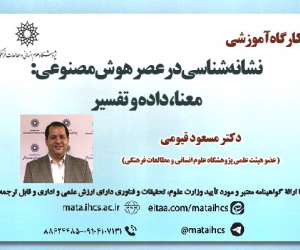نحوۀ حضور امر معنوی در شکل گیری معماری (معماری اسلامی: از نفی تا ایجاب) (مقاله علمی وزارت علوم)
درجه علمی: نشریه علمی (وزارت علوم)
آرشیو
چکیده
این مقاله به بررسی مفهوم معماری اسلامی و نقد نگرش های شرق شناسانه ای که در دویست سال اخیر شکل گرفته، می پردازد. هدف پژوهش، تحلیل ضرورت حضور امر معنوی در معماری به مثابه یک پدیده است که به جای تمرکز بر پاسخ ها و فرم های نهایی، به فرایند مسئله یابی و نیازهای بنیادین توجه دارد. چارچوب نظری مقاله، در راستای نقد گفتمان مرسوم در مورد معماری اسلامی است که با تفسیر و کاربرد ناقص آن، به از دست رفتن قابلیت این مفهوم به عنوان یک سنت فکری و تجربه زیستی تاریخی منجر شده است. این نگاه، به جای توجه به فرایند و مسیر، تنها بر محصول نهایی و مصداق تأکید می کند. سوال اصلی پژوهش این است که چگونه می توان معماری اسلامی را به مثابه یک فرایند معنوی و مسئله محور بازتعریف کرد که به توسعه بومی و خودآگاهی جمعی کمک کند؟ پژوهش حاضر، در تلاش است تا معانی صلب و ناکارآمدی که به مفهوم معماری اسلامی افزوده شده است را با رویکردی فلسفی و در قالب پارادایم تفسیری کنار بگذارد. روش این پژوهش پدیدارشناختی است و با تحلیل نشانه های ظاهری، در پی کشف معانی و باطن پدیده معماری اسلامی معنا پیدا می کند. یافته ها نشان می دهد که معماری به عنوان یکی از مظاهر تمدن، نیازمند احضار امر معنوی در جهت دهی به مسیر توسعه است؛ به ویژه برای خلق فضایی که بتواند نیازهای معنوی را در قالب ظرفی برای فعالیت های مبتنی بر معنا برآورده سازد.Manner of the Presence of the Spiritual Matter in the Formation of Architecture (Islamic Architecture: from Negation to Affirmation)
This article investigates the concept of Islamic architecture and criticisms of the orientalistic attitudes that have developed during the last two hundred years. The research aims to analyze the necessity of the presence of spirituality in architecture as a phenomenon, which instead of focusing on final answers and forms, pays attention to the process of problem-solving and fundamental needs. The theoretical framework of the article is in line with the criticism of the conventional discourse on Islamic architecture, the incomplete interpretation and application of which has led to the loss of the capability of this concept as an intellectual tradition and historical bio-experience. This view merely emphasizes the final product rather than the process and path. The main question of the research is how can Islamic architecture be redefined as a spiritual and problem-oriented process in a way that contributes to indigenous development and collective self-awareness. The present research attempts to put aside the rigid and ineffective meanings that have been added to the concept of Islamic architecture by adopting a philosophical approach in the form of an interpretive paradigm. The method of this research is phenomenological. This study drew upon external signs and sought to discover the meanings and inner meaning of Islamic architecture. The findings show that architecture, as one of the manifestations of civilization, needs to invoke spirituality in directing the development path; particularly to create a space that can meet the spiritual needs in the form of a container for meaning-based activities.








